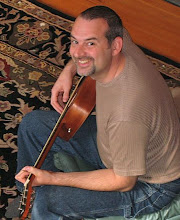I used to think I'd never use a camera phone, but I turned out to be wrong. I always have it at hand, and it's just too conveinent. I whipped out my trusty little iPhone and took a picture. What my eye saw in the sunset was not at all what the iPhone captured. Comparing the two was a pretty striking difference--the color reproduction was completely off and the contrast messed up. Didn't even look like the same skyline. I knew that it would take a real camera with all the corresponding f-stops, exposures, lenses, color filters, etc. to make it look like what I saw, and I had a real appreciation at that moment for photographers and the art of photography. Most people think it's just pointing and shooting, but there's much more in capturing what the eye sees. (I've attached the crappy picture that my iPhone took.)
Is there a point to this post? Not really. Unless you're one of the people who makes camera phones. Don't stop working on making point & click capture what the eye sees. I'm sure it's a terrifically difficult problem. Maybe I'll learn someday about digital photography and the hundreds of compromises in incorporating a sophisticated camera into a phone so I can appreciate the work that already has gone into it. But right now they're still far from perfect.



